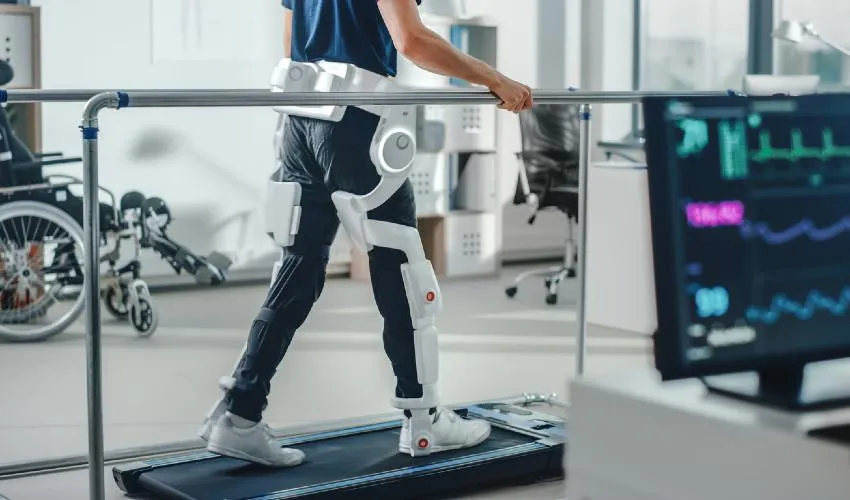
CERGAS to Champion European MedTech with 22 Public and Private Partners
A research project led by Bocconi's Center for Research on Health and Social Care Management (CERGAS) with the aim of supporting the introduction of innovative medical devices in the European Union has received €10.53 million in funding from the European Commission and €8.47 million from industry partners, for a total of €19 million, as part of the Horizon program. The kick-off event was held at Bocconi on 30 October.
Harmonized Approach to Early Feasibility Studies for Medical Devices in the European Union (HEU-EFS) aims to develop a shared and innovative program entirely dedicated to conducting Early Feasibility Studies (EFS) in the European Union for medical devices.
"The substantial commitment of both the public and private sectors to a multifaceted, four-year project demonstrates a full understanding of the need to evolve toward a collaborative, system-wide approach to support innovation in the European Union," says Rosanna Tarricone, who leads a CERGAS working group that includes Giuditta Callea and Chiara Mauro. The consortium has 22 partners among which there are universities, hospitals, contract research organizations (CROs), patient associations, health technology assessment agencies and small- and medium-sized firms, 6 industrial partners, and an extensive Advisory Board with regulatory authorities, notified bodies and professional associations.
Technological innovation in health care is expanding thanks in part to the push of Artificial Intelligence and digital innovation. However, increasing R&D costs, rapid obsolescence of medical devices and digital devices, plus ever-stricter European regulations are generating uncertainty for innovative device manufacturers.
Traditionally, the medical device market access process involves two stages: the first, the regulatory stage, aimed at measuring the safety and performance of the device; and the second, the Health Technology Assessment (HTA) stage, aimed at measuring the comparative effectiveness of the device and assessing whether the cost-benefit ratio is acceptable from the perspective of the third-party payer. The process, in its entirety, is fraught with challenges and uncertainties as the generation of evidence required for the regulatory stage follows different timelines and standards from that of HTA. Devices authorized at the regulatory stage can be excluded by HTA agencies based on comparative assessments with a negative outcome. The result is a net loss, for the entire system, of scarce resources that could have been allocated more efficiently for the benefit of patients.
What is the solution? Bringing forward the business case by generating evidence that early in the product life cycle stages (pre-market, pre-clinical) can provide relevant insight into the added value of the device with respect to the standard of care by considering the perspective of different stakeholders. Manufacturers need to improve efficiency and effectiveness in device development by bringing forward the needs of later stages of the product life cycle as much as possible, assessing the expectations of different stakeholders and taking a long-term strategic view.
Early Feasibility Studies are studies that, if designed appropriately, provide relevant information at an early stage on the concrete potential of the device to be introduced into clinical practice, while avoiding continued investment in low-value-added innovations.
The United States is the first and only jurisdiction to have taken full advantage of this opportunity by developing a specific program dedicated to EFS, with the clear objective of strengthening American leadership in innovation. In the EU, by contrast, to date there is no procedure, standard or guideline dedicated to this type of study. Thus, the EU risks losing competitiveness in the MedTech sector, even in the face of the strong growth of investment in emerging countries.
The need to develop a common, harmonized European EFS program was recently recognized as a strategic priority by the EU and included in the second call for proposals issued by Innovative Health Initiative (IHI), a public-private partnership between the European Commission and major industry associations.
This is why the HEU-EFS project coordinated by CERGAS was started. "Over the next four years, Bocconi will be responsible for leading a large international consortium through the different stages of the project. We will be developing a program that will not only have a significant impact on the generation of evidence along the medical device lifecycle but will substantially contribute to the positioning of the European Union within the MedTech industry," says Tarricone. "In fact, the EFS program represents a key step toward an actual implementation of the principles set out in the new European regulations. It is also as a tool to make the EU internationally recognized as an area at the forefront of the development of innovative technologies with high added value. This will increase the ability to attract investment in R&D, ideas and expertise, and as a result, the ability for patients to quickly access the best possible care."